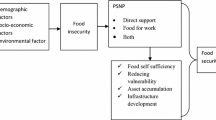Abstract
This is an evaluative study on the delivery of devolved programs in health, agriculture and social welfare. It aimed to identify the major devolved programs/projects implemented by the LGU of Columbio, Sultan Kudarat; the responsiveness of the actual delivery of devolve services in terms of human resources, facilities and fund allocation; the status of devolve services implemented if it was effective and efficient; and the inadequacies encountered. The “expose facto” method of research was used. There were 49 implementers and 132 beneficiaries of the various devolved programs. There were 181 total respondents. A four-part questionnaire was constructed and the gathered data were supplemented by information extracted through interviews with Key Informants, Focus Group Discussions and document analysis. There were three departments implementing the devolved social services programs such as the Municipal Health Office with 6 devolved health programs; the Municipal Agriculturist Office with 6 devolved agricultural projects; and the Municipal Social Welfare and Development Office with 7 devolved social welfare programs. The respondents rated the implementation of devolve services in health, agriculture and social welfare programs between rank 5 to 9 for the aspects of human resources, facilities and fund allocations. The respondents assessed the implementation of devolved programs as Very Efficient and Most Responsive programs to the needs of the people specially the children, youths and women. The study also found some inadequacies observed during the implementation of devolved social services programs which were Agreed by the majority of the respondents. These findings implied that the implementation of various devolved social services for several years has made a significant difference in the lives of the people of the Municipality of Columbio, Sultan Kudarat, the Local Government of Columbio and program implementers with their commitment and solidarity to serve the people especially the marginalized is a manifestation of their unselfish dedication to uplift the socio-economic condition and well-being of the people. Hence, continuing projects should further be strengthened and supported to ensure the sustainability of the projects even if the support of different institutions has been terminated.
Similar content being viewed by others
References
Books
Briones, L. (1996). Philippine public fiscal administration. Manila: National Research Council of the Philippines.
Cheema, G. S., & Rondinelli, D. A. (Eds.). (1983). Decentralization and development: Policy implementation in developing countries. Beverly Hills: Sage.
Clark, J. (1991). Democratizing development. London: Earthscan Publications Ltd.
Estrada, J. E. (1991). Philippine rural development problems, issues and directions. University of the Philippines. Los Banos: UPLB Rural Development Study Team.
Nolledo, J. (1991). The local government code of 1991. Manila: Philippine Graphic Art Inc.
Ocampo, R., & Panganiban, E. (1985). The Philippine local government system history politics and finance. Manila: Local Government Center, College of Public Administration, University of the Philippines.
Padilla, P. L. (1999). Strengthening local government administration and accelerating local development. Manila: U.P. Local Government Center.
Journals
Ocampo, R. (1997). Decentralization of local autonomy a framework for assessing progress. Philippine Journal of Public Administration, XXXV(3), 12–14.
Rondinelli, D. A. (1983). Implementing decentralization programmes in Asia: A comparative analysis. The Maxwell School of Citizenship and Public Affairs (pp. 10–12). Syracuse: Syracuse University.
Rondinelli, D. A., Nellis, J. R., & Shabbir Cheema, G. (1983). Decentralization in developing countries: A review of recent experience (pp. 8–10). World Bank Staff Working Paper No. 581, The World Bank, Washington D.C., USA.
Articles
Amatong, J. D. (2005). Local government fiscal and financial management best practices. Manila: Department of Finance.
Llanto, G. M. (2009). Fiscal decentralization and local finance reforms in the Philippines. Discussion Paper Series No. 2009-10. Philippine Institute for Development Studies.
Author information
Authors and Affiliations
Corresponding author
Rights and permissions
About this article
Cite this article
Alvarez, A.M., Bedoya, J.V. & Bag-ao, B.V.C. Delivery of Devolve Social Services: Its Contributions to the Socio-economic Conditions of Women in Columbio Sultan Kudarat. Gend. Issues 35, 289–301 (2018). https://doi.org/10.1007/s12147-018-9224-2
Published:
Issue Date:
DOI: https://doi.org/10.1007/s12147-018-9224-2




